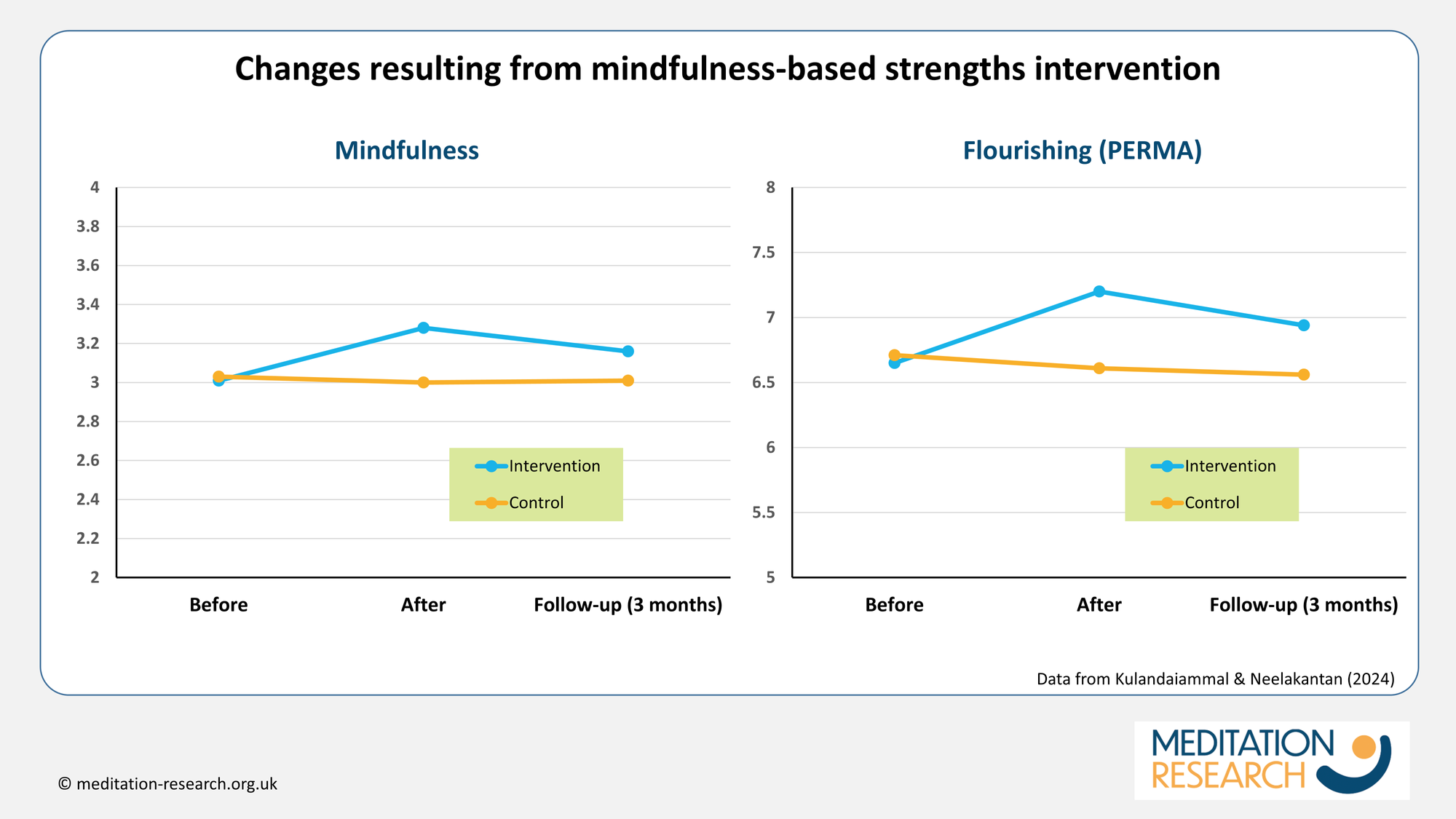In a recent blog post I shared my own experience of annually running the mindfulness-based strengths practice programme (MBSP; Niemiec, 2023) with the students on our Masters Programme Positive Psychology and Wellbeing. In that post, initially published on LinkedIn in December 2023, I also summarised empirical evidence regarding the positive effects of MBSP in education more broadly.
New research
Since then, several further studies have been published that contribute to the growing evidence that MBSP as well as other programmes that combine mindfulness and character strengths are effective for children and adolescents. It is encouraging to see that mindfulness-based character strengths interventions are offered to very diverse populations from several parts of the world, for example disadvantaged women in rural India (Kulandaiammal & Neelakantan, 2024), adolescent school children in the Netherlands (Kennes, et al., 2023) or 9-10 years old school children in Greece (Tamiolaki, et al., 2024).
Here a brief summary of these recent findings:
Rosy Kulandaiammal and Meera Neelakantan at Christ University, Bengaluru, India, conducted a control-group study and demonstrate that MBSP enhances flourishing, character strengths, and mindfulness and reduces psychological distress among women undergraduates (aged 18-24) compared to a control group that did not engage in any training (Kulandaiammal & Neelakantan, 2024).

In the Netherlands, Kennes et al. (2023) studied the effects of an adapted school-based mindfulness and character strengths intervention with female and male adolescents (mean age 14 years). They found that participation in the programme resulted increased emotional, psychological, and social well-being, while it also decreasing symptoms of hyperactivity/inattention and of peer-related problems when compared to adolescents who did not participate.
Tamiolaki et al (2024) provide some evidence that mindfulness-based character strengths approached can be beneficial for even younger children. They investigated whether this approach could help 9-10 years old female and male Greek children deal well with the challenges posed by COVID-19 related restrictions. Zooming in on posttraumatic growth (PTG), i.e. positive changes emerging from experiencing life difficulties, their study confirmed improvements in PTG, well-being, mindfulness and also in strengths use compared to the children in the control group.
These three studies significantly grow the evidence base that MBSP can be a meaningful and effective intervention programme, relevant for many age groups and across cultures and countries.
References
- Kennes, A., Lataster, J., Janssens, M., Simons, M., Reijnders, J., Jacobs, N., & Peeters, S. (2023). Efficacy of a school-based mental health intervention based on mindfulness and character strengths Use Among adolescents: A pilot study of think happy-Be happy intervention. Journal of Happiness Studies, 24(2), 677–697. https://doi.org/10.1007/s10902- 022-00611-5
- Kulandaiammal, R., & Neelakantan, M. (2024): Effects of mindfulness-based strengths practice (MBSP) among women undergraduates in enhancing positive mental health. British Journal of Guidance & Counselling, https://doi.org/10.1080/03069885.2024.2429396
- Tamiolaki, A., Kalaitzaki, A., Papadakaki, M., & Kourkoutas, E. (2024). The silver lining of posttraumatic growth around the dark side of the COVID-19 pandemic: A school-based intervention with mindfulness and character strengths practices among children. Healthcare, 12, 1–14. https://doi.org/10.3390/healthcare12020283



